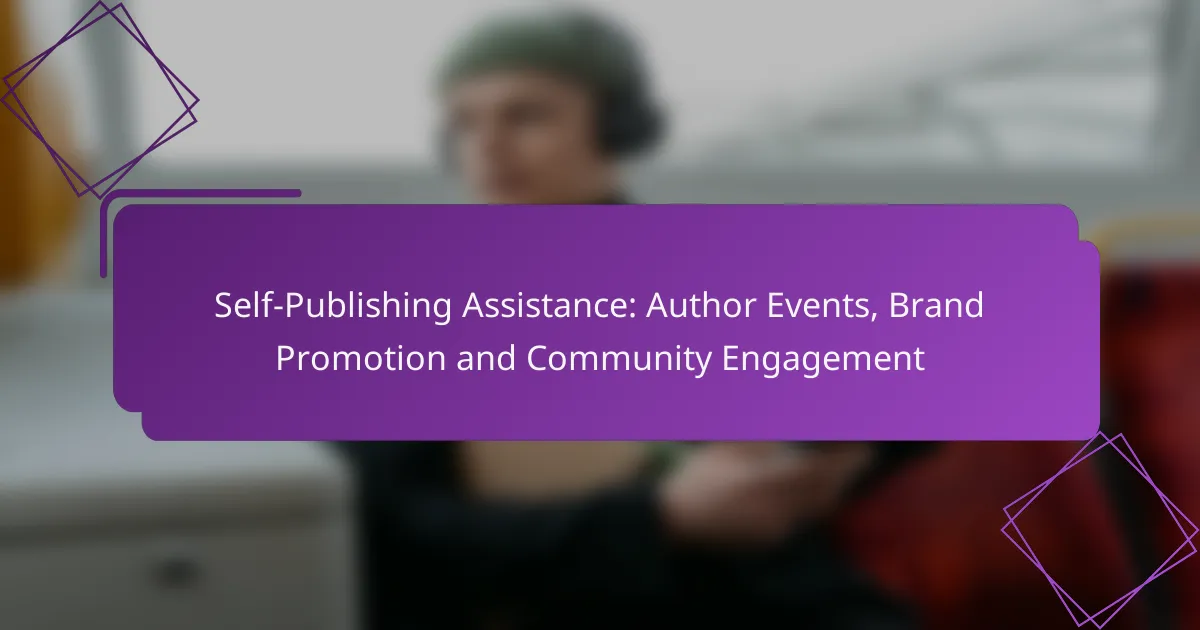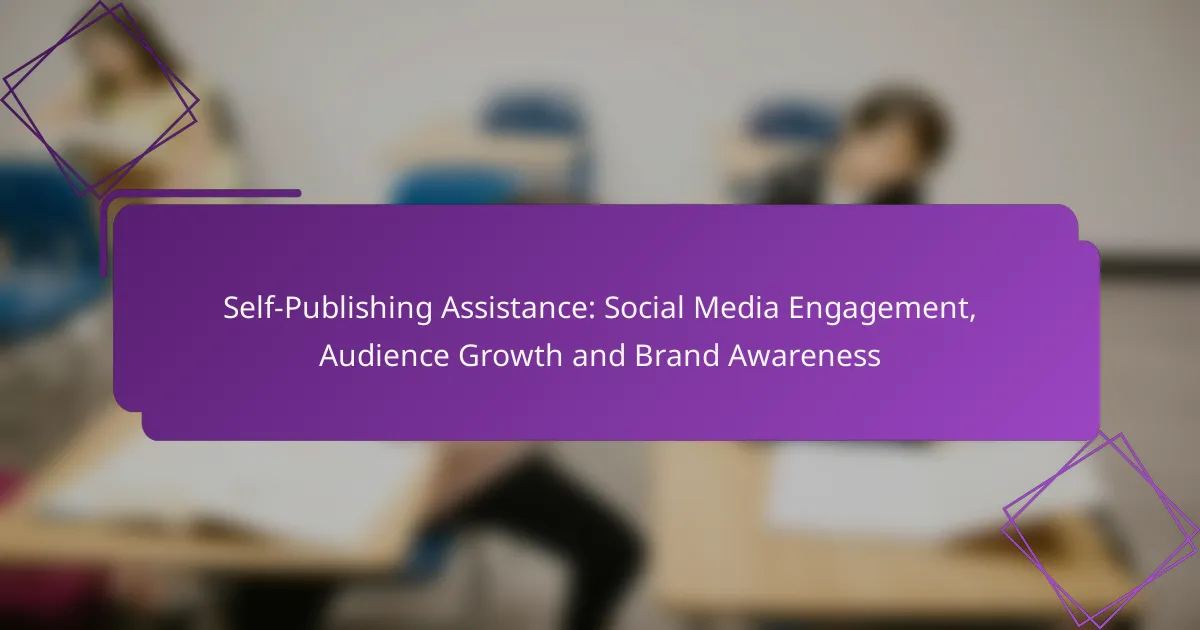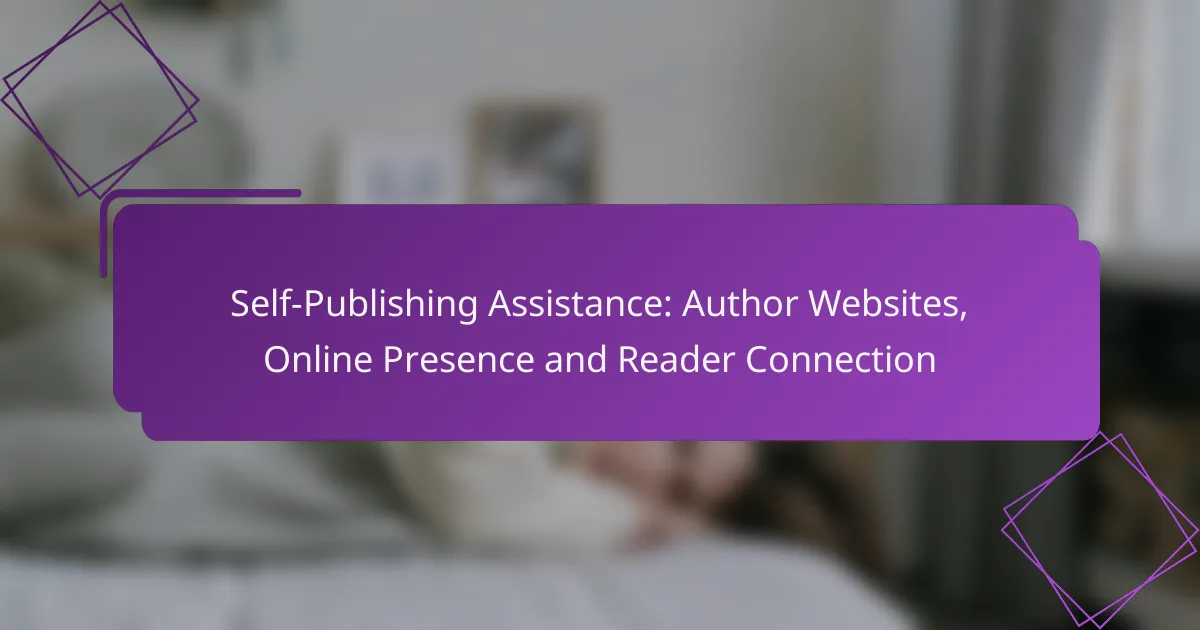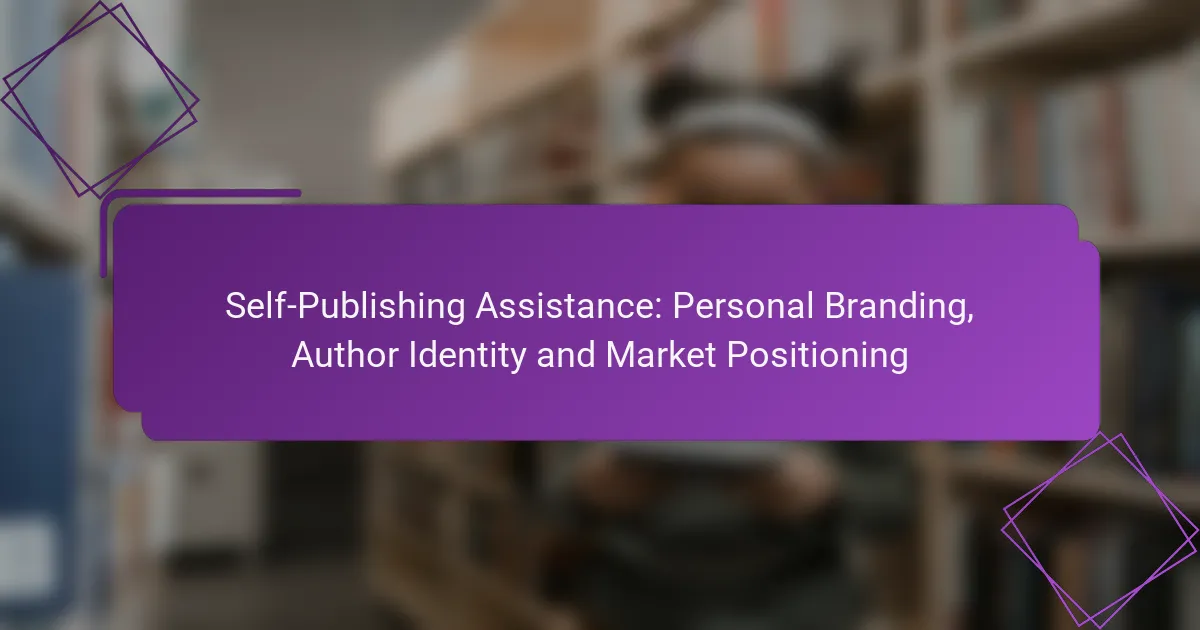Self-publishing authors have unique opportunities to enhance their visibility and engage with their audience through strategic brand promotion and community involvement. By participating in author events and utilizing digital marketing techniques, such as social media and email newsletters, writers can effectively connect with readers and build lasting relationships. Engaging with the community not only promotes literacy but also fosters a supportive network that can lead to collaborative opportunities.
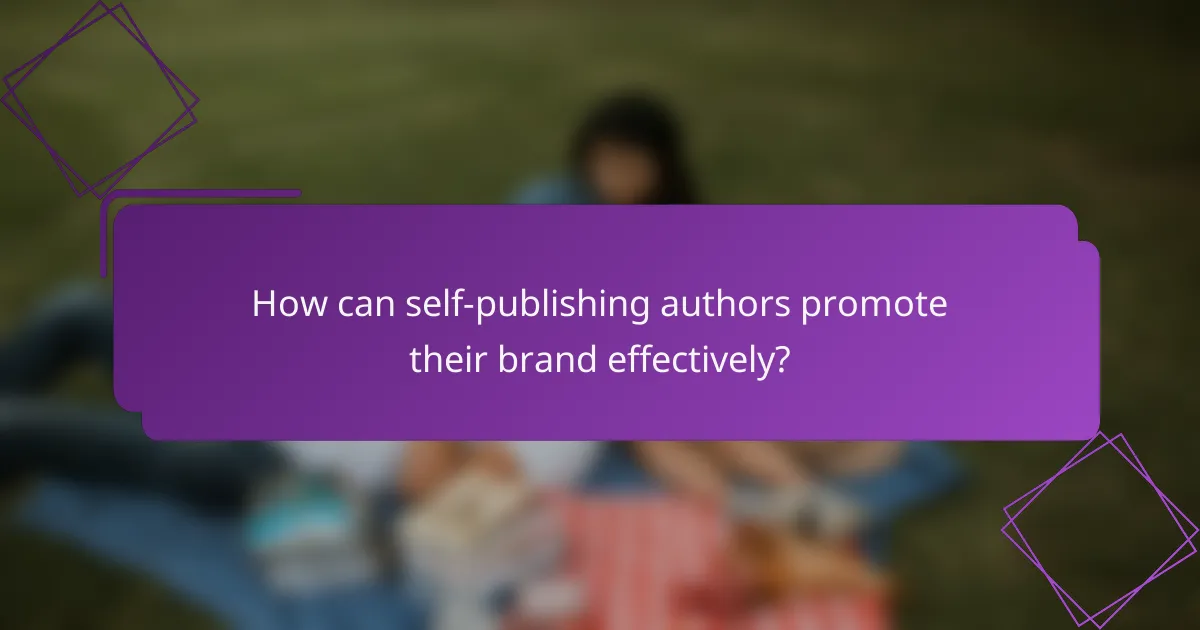
How can self-publishing authors promote their brand effectively?
Self-publishing authors can promote their brand effectively by leveraging various digital marketing strategies that enhance visibility and engagement. Key methods include utilizing social media, collaborating with influencers, and maintaining direct communication with readers through email newsletters.
Social media marketing strategies
Social media platforms like Facebook, Instagram, and Twitter are essential for self-publishing authors to connect with their audience. Regularly posting engaging content, such as book excerpts, behind-the-scenes looks, and personal stories, can help build a loyal following.
Consider using targeted ads to reach specific demographics, which can increase your visibility among potential readers. Aim to post consistently, ideally several times a week, to keep your audience engaged and informed about your work.
Collaborations with influencers
Partnering with influencers in the literary community can significantly boost your brand’s reach. Look for influencers who share your genre or themes and propose mutually beneficial collaborations, such as book reviews or social media takeovers.
When selecting influencers, consider their audience size and engagement rates to ensure they align with your target market. A well-placed recommendation from a trusted influencer can lead to increased book sales and follower growth.
Utilizing email newsletters
Email newsletters are a powerful tool for self-publishing authors to maintain direct communication with their readers. By collecting email addresses through your website or social media, you can send updates about new releases, events, and exclusive content.
Keep your newsletters concise and engaging, including personal anecdotes or insights into your writing process. Aim to send newsletters monthly or bi-monthly to keep your audience informed without overwhelming them.
Creating a personal website
A personal website serves as a central hub for your brand, showcasing your books, biography, and contact information. Ensure your website is visually appealing and easy to navigate, with clear links to purchase your books and follow your social media accounts.
Incorporate a blog section to share updates, writing tips, or book-related content, which can improve your site’s search engine ranking. Regularly updating your website with fresh content can attract more visitors and potential readers.
Participating in online forums
Engaging in online forums and communities related to your genre can help you connect with potential readers and other authors. Platforms like Reddit, Goodreads, and specialized writing forums allow you to share your expertise and promote your work in a natural way.
Be active in discussions, offer valuable insights, and avoid overt self-promotion. Building relationships within these communities can lead to organic interest in your books and greater brand recognition.
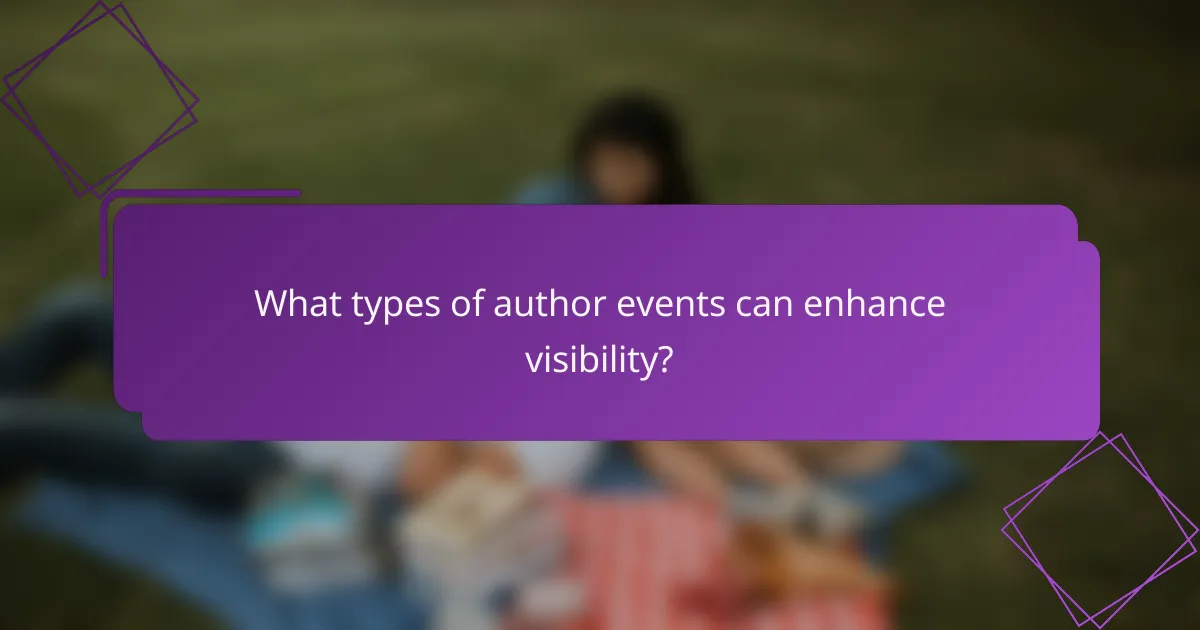
What types of author events can enhance visibility?
Author events can significantly boost visibility by creating opportunities for direct interaction with readers and the community. Engaging in various types of events allows authors to showcase their work, build their brand, and foster relationships with their audience.
Book signings at local bookstores
Book signings at local bookstores are a classic way to connect with readers. These events typically involve authors signing copies of their books, often accompanied by a brief reading or discussion. To maximize impact, consider scheduling signings during peak hours or special events, such as store anniversaries or local festivals.
When planning a book signing, reach out to bookstores that align with your genre. Establish a partnership by promoting the event through social media and local community boards. This can help draw in a crowd and create a buzz around your work.
Virtual author Q&A sessions
Virtual author Q&A sessions allow authors to engage with a broader audience online. These events can be hosted on platforms like Zoom or social media, where readers can ask questions in real-time. To ensure a successful session, promote it in advance and encourage participants to submit questions beforehand.
Consider using visual aids, such as slides or video clips, to enhance the experience. This format is particularly beneficial for reaching international audiences, as it eliminates travel barriers and can be recorded for later viewing.
Participation in literary festivals
Participating in literary festivals provides authors with a platform to showcase their work alongside other writers and industry professionals. These events often include panels, readings, and networking opportunities, making them ideal for building connections and gaining exposure.
When selecting festivals, look for those that cater to your genre and audience. Prepare for your participation by having promotional materials ready, such as bookmarks or flyers, to distribute to attendees. Engaging in discussions and panels can further enhance your visibility and credibility in the literary community.
Hosting workshops and seminars
Hosting workshops and seminars allows authors to share their expertise while promoting their books. These events can cover various topics, such as writing techniques, publishing processes, or marketing strategies. By providing valuable content, authors can attract participants who are interested in their work.
To organize a successful workshop, choose a relevant topic and set clear objectives. Promote the event through local community centers, libraries, and online platforms. Consider offering a small fee or free entry to encourage attendance, and provide materials that participants can take home for further learning.
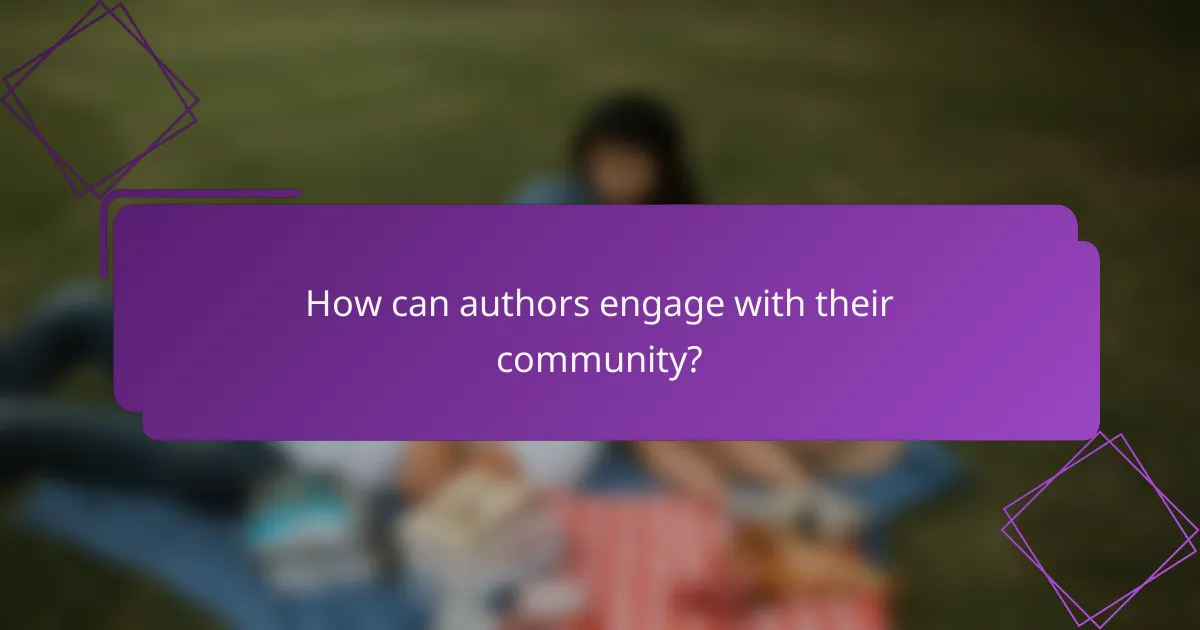
How can authors engage with their community?
Authors can engage with their community by participating in local events, fostering connections with readers, and promoting literacy. These activities not only enhance an author’s visibility but also create a supportive network that can lead to collaborative opportunities.
Joining local writing groups
Joining local writing groups allows authors to connect with fellow writers, share experiences, and receive feedback on their work. These groups often meet regularly, providing a structured environment for critique and encouragement.
Consider looking for groups that focus on your genre or writing style to maximize relevance. Many communities have organizations that host workshops, readings, and networking events, which can be invaluable for building relationships.
Volunteering for community literacy programs
Volunteering for community literacy programs helps authors give back while promoting reading and writing skills. Many libraries and schools seek volunteers to assist with tutoring, organizing events, or leading workshops.
This engagement not only supports literacy but also positions authors as advocates for education. Participating in these programs can lead to meaningful connections with families and educators, enhancing your local presence.
Hosting book clubs
Hosting book clubs is an effective way for authors to engage directly with readers and foster discussions about their work. These gatherings can be held in person at local cafes or libraries, or virtually through platforms like Zoom.
When organizing a book club, choose a specific theme or genre to attract participants. Providing discussion questions or insights about your writing process can enrich the experience and encourage deeper engagement with your book.
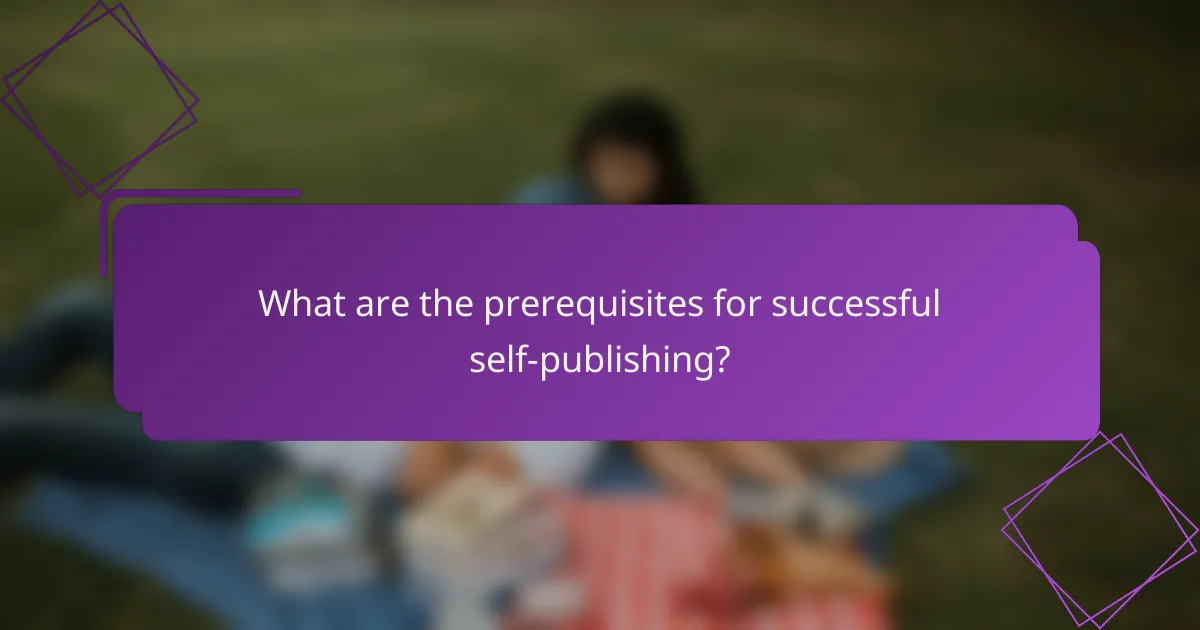
What are the prerequisites for successful self-publishing?
Successful self-publishing requires a clear understanding of the publishing process, a strong professional network, and effective brand promotion strategies. Authors must also engage with their community to build a loyal readership and enhance their visibility in the market.
Understanding the publishing process
The publishing process involves several key steps, including writing, editing, designing, and distributing your book. Authors should familiarize themselves with each stage to ensure a polished final product. This may involve hiring professionals for editing and cover design or using self-service platforms.
Consider the various formats available, such as eBooks, print-on-demand, or audiobooks. Each format has different production costs and distribution channels, so choose the one that aligns with your target audience and budget.
Building a professional network
Networking is crucial for self-published authors to gain visibility and support. Attend local author events, workshops, and literary festivals to connect with other writers, publishers, and industry professionals. Online platforms like social media and writing forums can also help you expand your reach.
Consider joining writing groups or associations that focus on self-publishing. These communities often provide resources, advice, and opportunities for collaboration, which can enhance your credibility and open doors for promotional activities.
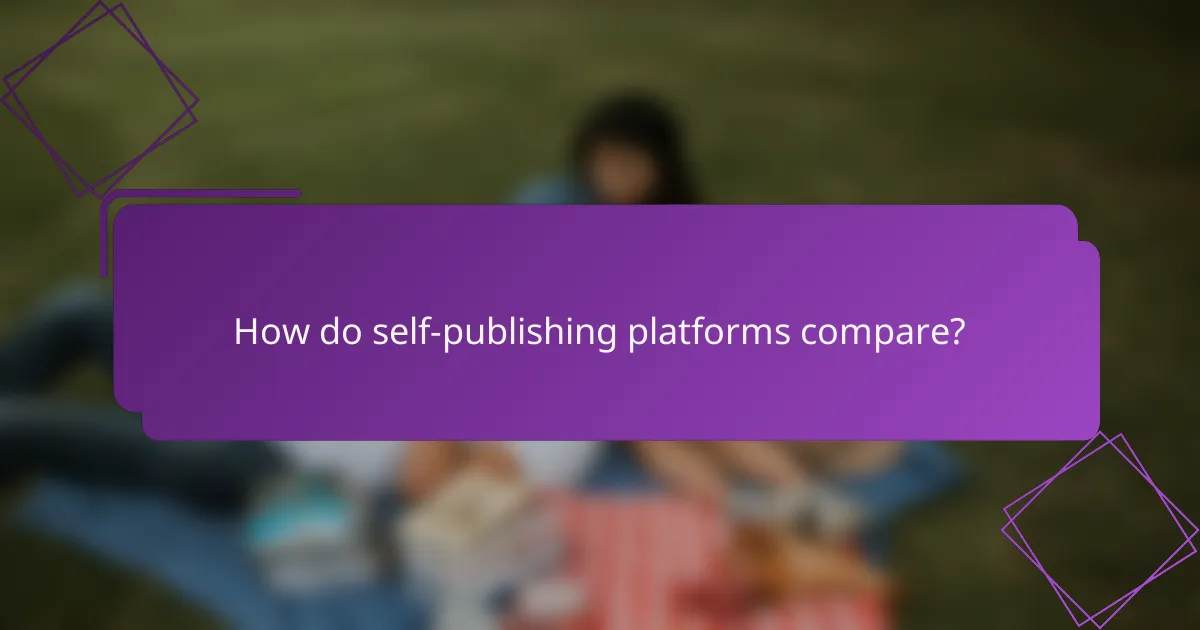
How do self-publishing platforms compare?
Self-publishing platforms vary significantly in terms of distribution, royalties, and ease of use. Choosing the right platform depends on your specific needs as an author, including your target audience and marketing strategy.
Amazon Kindle Direct Publishing vs. IngramSpark
Amazon Kindle Direct Publishing (KDP) is primarily focused on eBooks and offers a straightforward setup process, making it ideal for new authors. KDP allows authors to earn up to 70% royalties on eBook sales, but it limits distribution to Amazon’s ecosystem.
IngramSpark, on the other hand, provides broader distribution options, including print and eBook formats across various retailers and libraries. While it charges setup fees, authors can access a wider audience, which may lead to higher overall sales despite lower royalties per sale compared to KDP.
Draft2Digital vs. Smashwords
Draft2Digital is known for its user-friendly interface and excellent customer support, making it a great choice for authors new to self-publishing. It distributes eBooks to multiple retailers and offers a simple royalty structure, typically around 60% of the sale price.
Smashwords, while offering extensive distribution options, has a more complex formatting process that can be challenging for some authors. It also provides a wider range of promotional tools but takes a slightly higher percentage of royalties, which can affect overall earnings. Authors should weigh the ease of use against potential reach when choosing between these platforms.
